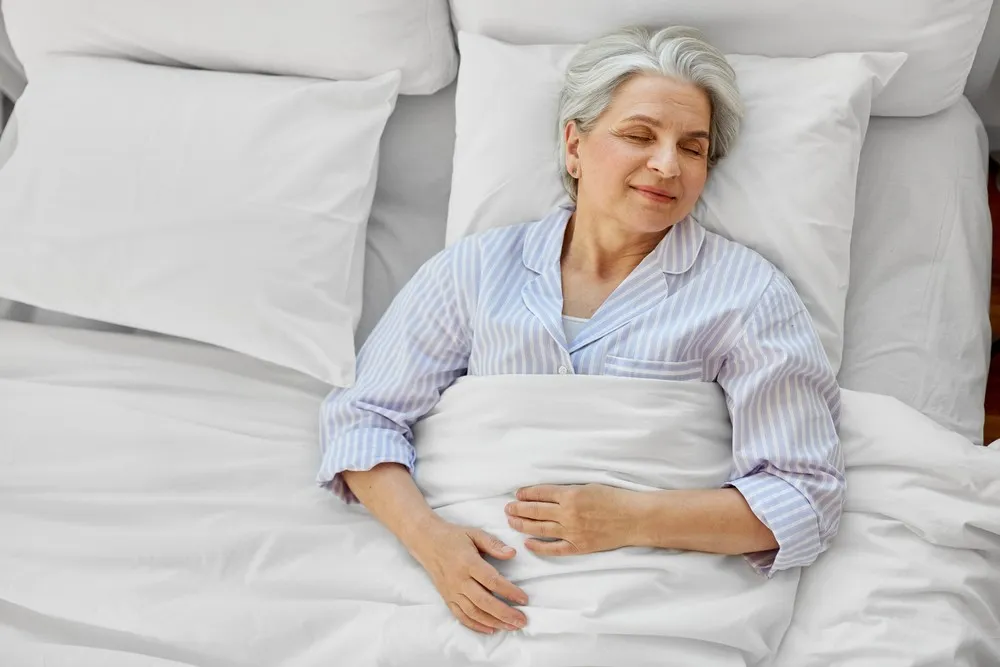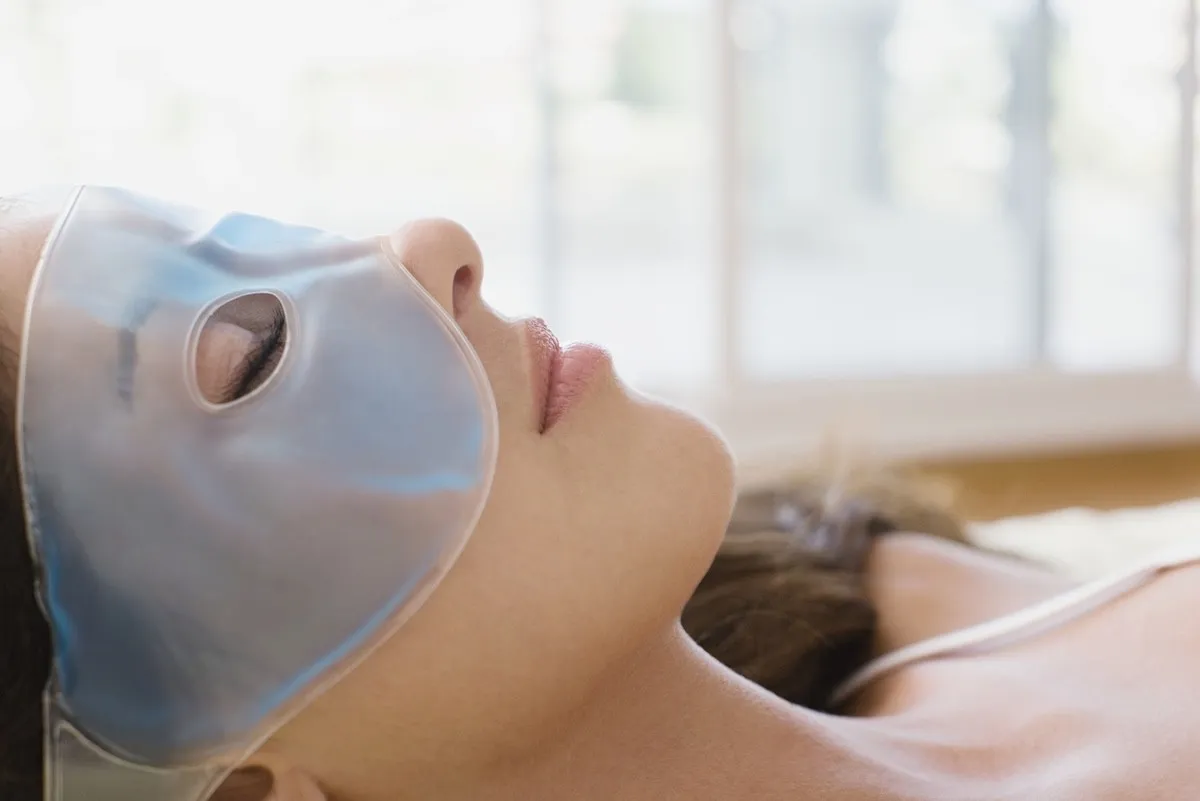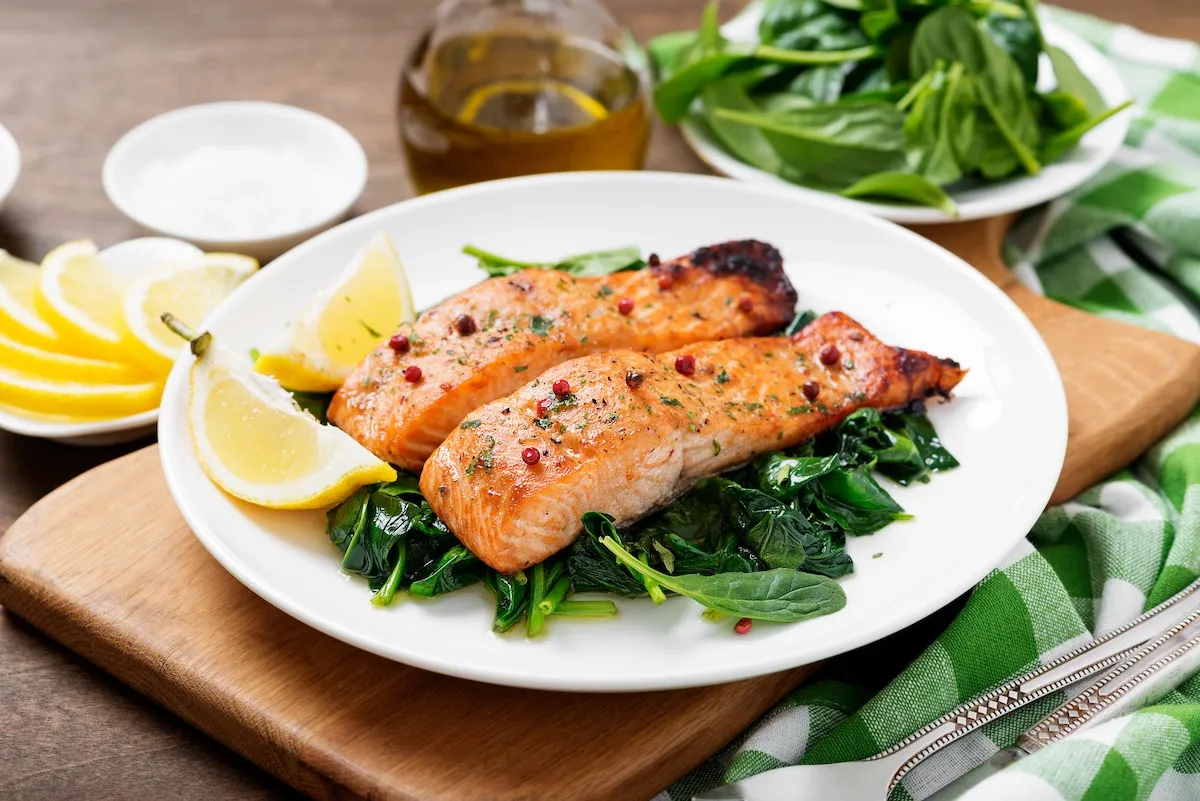Suffering From Night Sweats? These Simple and Safe At-Home Remedies Can Help

If you’ve ever woken up drenched in sweat—your sheets sticking to your skin and your pillow soaked—you’re definitely not alone. According to the Sleep Foundation, up to 80 percent of menopausal women may experience night sweats as a result of hormonal fluctuations.
“Menopause is a transformative phase, marked by a gradual decline in estrogen levels,” explains Vian Miran, MBBS, a general practitioner at Hola Health. “This natural transition is completely normal, but the symptoms can feel like your world is about to end. Insufferable hot flashes, mood swings, and night sweats are all part of the usual package.”
Though menopause is the most common cause of night sweats, your doctor should still rule out any other underlying conditions that can cause the symptom, such as infection, diabetes, or cancer. However, once you’ve gotten the all-clear, experts say that a handful of lifestyle hacks are the hottest ways to cool you down.
Ready to reclaim your night and wake up feeling your best? Here are six safe and simple at-home remedies to finally kick your night sweats out of bed.
RELATED: 7 Best Menopause Supplements, According to Doctors.
1
Create a cool and breathable sleep environment.

Setting the scene for a good night’s sleep is always important, regardless of whether or not you’re experiencing any particular sleep disruptions. Most people will get their best rest in a cool, dark, quiet place.
However, Miran notes that your sleep environment—and particularly your room temperature—is especially impactful if you’re waking up to night sweats.
“Your bedroom should feel like a comfortable sanctuary, not a sauna,” she says. “Keep the bedroom cool (60°F to 67°F) and use breathable, moisture-wicking bedding. Swap heavy blankets for lightweight layers and consider a bedside fan or cooling pillow.”
Not sure where to begin? Consider trying SIJO’s CLIMA Cloud Support Pillow, DOZ Bamboo Duvet Cover Set, Brooklinen’s Classic Percale Sheets, and Rest’s Evercool Cooling Comforter.
2
Try cooling pads.

Several brands now make cooling pads specifically designed to soothe your hot flashes and night sweats. For instance, Opal Cool‘s line of cold therapy products includes eye masks, over-the-shoulder pads, bra inserts, and “cool caps” that can rest on the head under a hat to bring your body temperature down.
After hearing her patients discuss “thousands of strategies” to cool the body by icing specific body parts, Miran says the one that worked for her is using a cooling pad on the heels of her feet. “Strange, I know!” she says. “Every solution isn’t for everybody, but experimenting will get you to know what works best for you. And sometimes simply an ice pack on your feet is all you need!”
RELATED: Women Actually Do Sleep Less and Worse, Research Shows—Here’s Why.
3
Choose breezy sleepwear.

Miran says that reaching for the right pajamas can also help you turn down the heat. She suggests sleeping in lightweight, loose-fitting pajamas made of cotton or a moisture-wicking fabric to help regulate body temperature. Thermoregulating fabrics such as Mulberry silk, linen, and bamboo are also good options.
In a previous interview with Best Life, experts have said the best cooling pajamas are the bamboo sets from Cozy Earth, the moisture-wicking pajama sets from Cool Jams, Soma’s Cool Nights collection, and Dagsmejan’s Stay Cool collection.
“Some even sleep naked to allow more air and to avoid heat retention,” Miran adds.
4
Adjust your diet.

Your diet can have a significant impact on your hormonal balance, so Miran suggests skipping hot foods and sweets, which can worsen menopause symptoms like hot flashes and night sweats.
She also notes that, even if you’re not going through a major hormonal shift, drinking alcohol and caffeine can trigger night sweats.
“Alcohol dilates the blood vessels, causing hot flashes to be worse. Caffeine, on the other hand, cranks up your nervous system,” she explains. “The consequence? A restless, miserable night’s sleep. Therefore, if possible, steer clear of alcohol and caffeine entirely or at least skip them during nighttime hours.”
“Focus instead on foods that contain soy (tofu, edamame), cruciferous vegetables (broccoli, kale), and foods high in fiber to balance estrogen levels,” she advises.
Brynn Kanuck, LAc, DAcCHM, a board certified Integrative Medicine Practitioner and founder of Austin Transformational Health, agrees that diet can play a crucial role. She recommends following a whole foods, plant-based diet consisting of fruits, vegetables, and whole grains, noting that this can help stabilize mood and hormonal balance.
“Fatty fish, avocados, and flaxseeds are sources of omega-3s that support hormone balance, and phytoestrogenic foods such as soy, chickpeas, and lentils work as symptom-reducers,” she adds.
RELATED: Struggling With Belly Fat After Menopause? Trainer Shares the Simple Way to Slim Down.
5
Stay hydrated.

Hot flashes and night sweats can cause the body to lose water through perspiration, so it’s important to replenish your stores. However, staying hydrated can also help you temper those symptoms to begin with.
“Water is your best ally,” Miran advises. “Drinking at least eight glasses of water daily helps to regulate body temperature and prevents dehydration, which tends to exacerbate night sweats. Some women find that drinking cold water before bedtime relieves the intensity of hot flashes.”
6
Ask your doctor about herbal supplements.

Some herbal supplements may also help curb your night sweats and other menopause symptoms.
Pamela Peeke, MD, a physician and women’s health expert working Solaray, recommends black cohosh, “a well-known herbal remedy” that she says can “help reduce the intensity of hot flashes and night sweats and support a balanced mood.”
That said, Miran cautions that you should always check in with your doctor before starting a new regimen.
“Certain women get relief through herbal supplements such as black cohosh, red clover, or maca root,” she notes. “However, the results are inconsistent, and not all supplements work for everyone. So, I’d suggest testing and always being aware of the potential side effects and the recommended dosages.”